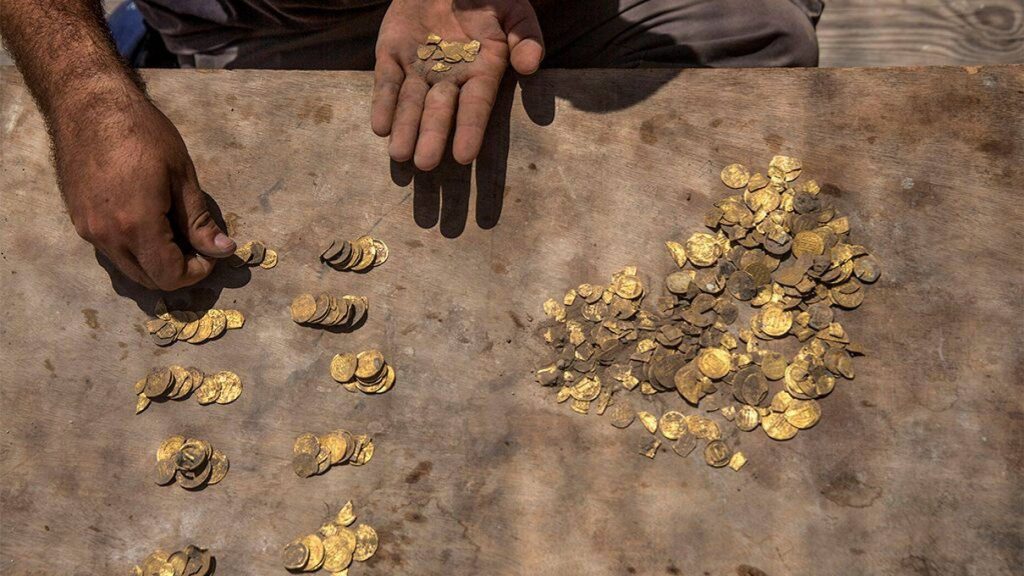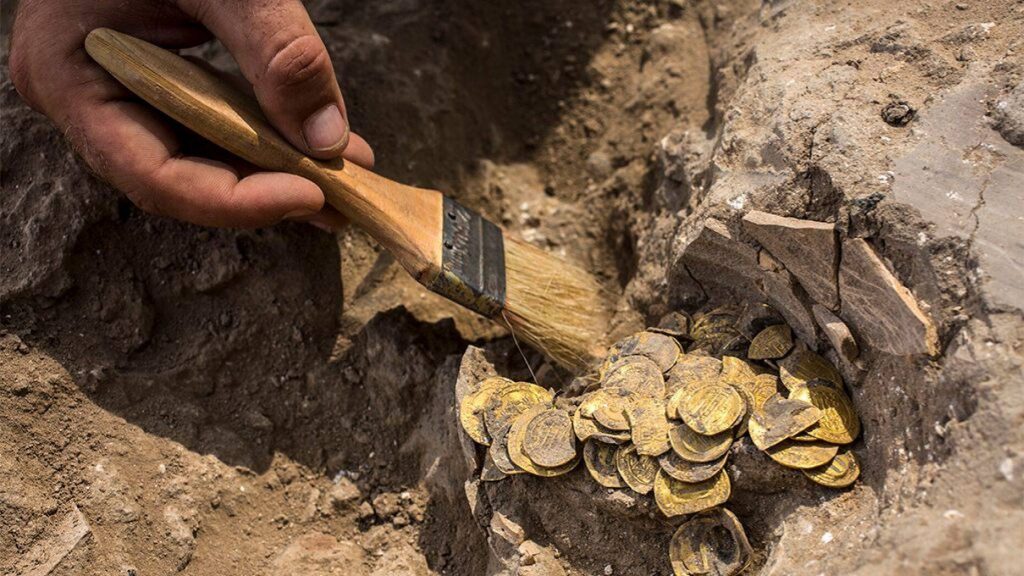Israeli archaeologists discover large trove of Islamic gold coins

Israeli archaeologists discover large trove of Islamic gold coins
In a recent dig at Yavne, the central Israeli city, a trove of early Islamic gold coins have been discovered, archaeologists said on Monday.

The collection of 425 whole gold coins, mostly from the Abbasid era some 1,100 years ago, was an “extremely rare discovery,” said the archaeologists of the Israel Antiquity Authorities Liat Nadav-Ziv and Elie Haddad in a joint statement.
The coins were unearthed by youth volunteers over the last few days.
There were also discovered hundreds of other smaller gold coins clippings which would have served as smaller denominations.
Initial analysis indicates the coins date back from the late 9th century, according to Robert Kool, a coin expert with the antiquities authority.
The period is is considered the golden age of the Abbasid Caliphate that controlled most of the Near East and North Africa.


“Hopefully the study of the hoard will tell us more about a period of which we still know very little,” Kool said.
The discovery was among the largest caches of ancient coins found in Israel.
In 2015, amateur divers found around 2,000 gold coins off the coast of the ancient port city of Caesarea dating to the Fatimid period in the 10th and 11th centuries.